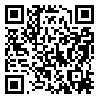BibTeX | RIS | EndNote | Medlars | ProCite | Reference Manager | RefWorks
Send citation to:
URL: http://jhr.ssu.ac.ir/article-1-266-en.html

 , Tahereh Rahimi *1
, Tahereh Rahimi *1 
 , Zoya Khajedehi1
, Zoya Khajedehi1 
 , Fatemeh Jowzi2
, Fatemeh Jowzi2 
 , Hava Daryafti3
, Hava Daryafti3 
 , Zahra Akbari3
, Zahra Akbari3 
 , Esmat Rahavi4
, Esmat Rahavi4 
 , Tahereh Soltani1
, Tahereh Soltani1 
 , Najme Baghian5
, Najme Baghian5 

2- 2. Department of Health, Islamic Azad University, Firoozabad Branch, Firoozabad, Iran
3- 3. Department of Epidemiology, School of Health, Shahid Sadoughi University of Medical Sciences, Yazd, Iran
4- 4. Department of Consultation and Guidance, Islamic Azad University, Yazd, Iran
5- 5. Health Policy Research center, Faculty of Health, Shahid Sadoughi University of Medical Sciences, Yazd, Iran
Introduction: Daily milk consumption can be introduced as a healthy dietary pattern associated with a range of health benefits. This study aimed to determine factors associated with milk consumption among students of Yazd university of medical sciences based on the theory of planned behavior.
Materials & Methods: This cross-sectional study was conducted on 385 students in 2014, who were selected via stratified random sampling. The study data was collected from a questionnaire based on the indirect construct of theory of planned behavior. Finally, the study data were analyzed using the T-test, Chi-square, and Fisher's exact tests.
Results: In the present study, 64% of the students consumed milk daily. The behavioral intention, behavioral beliefs, normative beliefs, control beliefs, and perceived power were significantly associated with the milk consumption (p<0.05).
Conclusion: Educating the students in regard with the importance of receiving enough amount of milk, modifying their misconceptions as well as reinforcing positive beliefs can be effective in increasing milk consumption. In addition, increasing access to milk in university campuses should be taken into consideration.
Received: 2015/09/26 | Accepted: 2015/11/11 | Published: 2016/02/7
| Rights and permissions | |
 |
This work is licensed under a Creative Commons Attribution 4.0 International License. |



